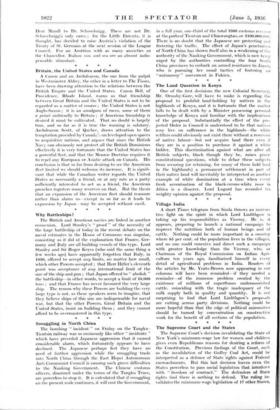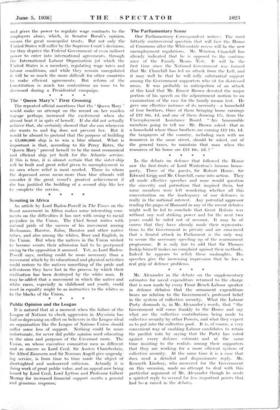The Supreme Court and the States The Supreme Court's decision
invalidating the State of New York's minimum-wage law for -women and children gives even Republicans reasons for desiring a reform of the Constitution. Previous findings of the Court, such as the invalidation of the .Guffey Coal Act, could be interpreted as a defence of State rights against Federal encroachments. But this last decision leaves even the States powerless to pass social legislation that interferes with "freedom of contract." The defenders of State rights, find there is nothing to defend. The ruling in- validates the minimum-wage legislation of 17 other States, and gives the power to regulate wage contracts to the employers alone, which, in Senator Borah's opinion, means the great monopolist trusts. But not only the United States will suffer by the Supreme Court's decisions, for they deprive the Federal Government of even indirect power to enter into international agreements, through the International Labour Organisation (of which the United States is a member), regulating wage rates and labour conditions, and while they remain unregulated it will be so much the more difficult for other countries to make efficient agreements. But reform of the Constitution is much too contentious an issue to be discussed during a Presidential . campaign.
* *















































 Previous page
Previous page